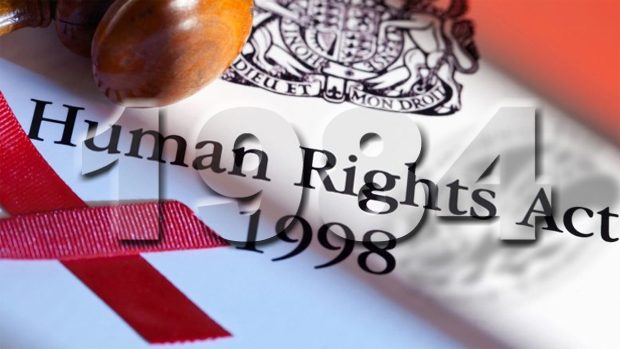Privacy of Correspondence
A Letter to the Editor from regular contributor NIGEL WARD, appealing for a proper respect for a fundamental aspect of law.
~~~~~
Sir,
A great deal has been said, and published, about Scarborough Borough Council’s practice and policy of intercepting emails from members of the public, both to elected members (Councillors) and to Officers of Paid Service – and vice versa.
I have stated many times that, in broad brush strokes, Councils may conduct only such actions as are authorised under statute (Acts of Parliament and Statutory Instruments), whereas members of the public are free to conduct such actions as are not prohibited. That principle is enshrined in law, and we are all equally bound by it. To suggest that certain ‘designated’ members of the public should be denied access to public servants is to promulgate a police state.
Scarborough Borough Council has, on occasion, cited various (spurious) interpretations of the law as ‘authorisation’ for its email interception policy – including former Deputy Monitoring Officer David P. KITSON’s statement in the Council Chamber, in which he assured members that the interception of emails is authorised under the Regulation of Investigative Powers Act 2000 (RIPA). Not in the case in hand, it is not; RIPA is anti-terrorism legislation – not a 1984-style tool to fend off public scrutiny, enquiry or criticism. Citizen journalists are not terrorists.
Shortly after this faux pas, Mr KITSON left the Council . . .
Time and again, elected members have made overtures to the former Chief Exec, Mr Jim DILLON, and to his Director of Legal & Democratic Services and Monitoring Officer, Mrs Lisa DIXON, to cease this undemocratic and unlawful practice – to no avail. Mr DILLON is another who left the Council at conspicuously short notice in the aftermath of an act of highly questionable vires . . .
“Never apologise, never explain”.
The Directorate’s (and the new Leader’s) intransigence on this issue is the measure of how deep the dread of scrutiny, how chill the fear of exposure, that now permeates the directing minds of Scarborough Borough Council – with one possible exception. This could be why it has taken the Council nearly five months (the legal requirement is 72 hours) to report itself to the Information Commissioner’s Office in respective of the ‘potential’ leak of the personal CVs of the applicants for the Chief Executives position. The Council, it would seem, resents scrutiny from every quarter, including the Information Commissioner’s Office.
Freedom of Information and Subject Access Requests are denied not because they are rude, offensive or threatening but because they stand to expose wastefulness, incompetence or corruption. This strategy is a classic example of corporate ‘reputational management’. Believe me, the Council does not aspire to being perfect; it seeks merely to appear to be perfect. The North Yorks Enquirer poses a threat to that appearance by, for recent example, demonstrating the desperate inadequacies of the Car Cruising Public Spaces Protection Order (PSPO) and the Controlled Parking Zones (CPZs), each of which has cost thousands in useless signage. The Council’s CCTV system will be next.
But whatever the motivation behind Officers’ inexcusable attacks on freedom of correspondence and freedom of expression, the bottom line is that the Council must comply with the law.
Since 1998, the very first law with which every public body must comply is the Human Rights Act of 1998; in particular, Article 8 of the Act (from which I quote, with particular emphasis on two phrases, underlined):
Article 8 Right to respect for private and family life
1 Everyone has the right to respect for his private and family life, his home and his correspondence.
2 There shall be no interference by a public authority with the exercise of this right except such as is in accordance with the law and is necessary in a democratic society in the interests of national security, public safety or the economic well-being of the country, for the prevention of disorder or crime, for the protection of health or morals, or for the protection of the rights and freedoms of others.
I need hardly point out that conducting inquisitive email correspondence with Councillors and/or Officers does not risk jeopardising “national security, public safety or the economic well-being of the country”. Nor will it impinge on “the prevention of disorder or crime … the protection of health or morals, or … the rights and freedoms of others”. Email correspondence is nothing more or less than a convenient form of private conversation. And I am not alone in having been denied my right to converse with public servants in confidence.
What is more, having discussed these issues with many elected members, in confidence, I have yet to encounter disagreement with my view – i.e. that the Council is breaching my human rights, and those of several other contributors to the North Yorks Enquirer, not excluding certain elected members of the Council. This email interception – let us be quite clear – is illegal and it is Officer-driven.
However, one man* can revoke this abhorrent and unlawful practice forthwith. If he respects the law – and respects my rights – he must now proceed to do so. It is my hope and intention, in due course, to converse with him in confidence . . .
Regards,
Nigel
* – I discount the Leader.




























Comments are closed.